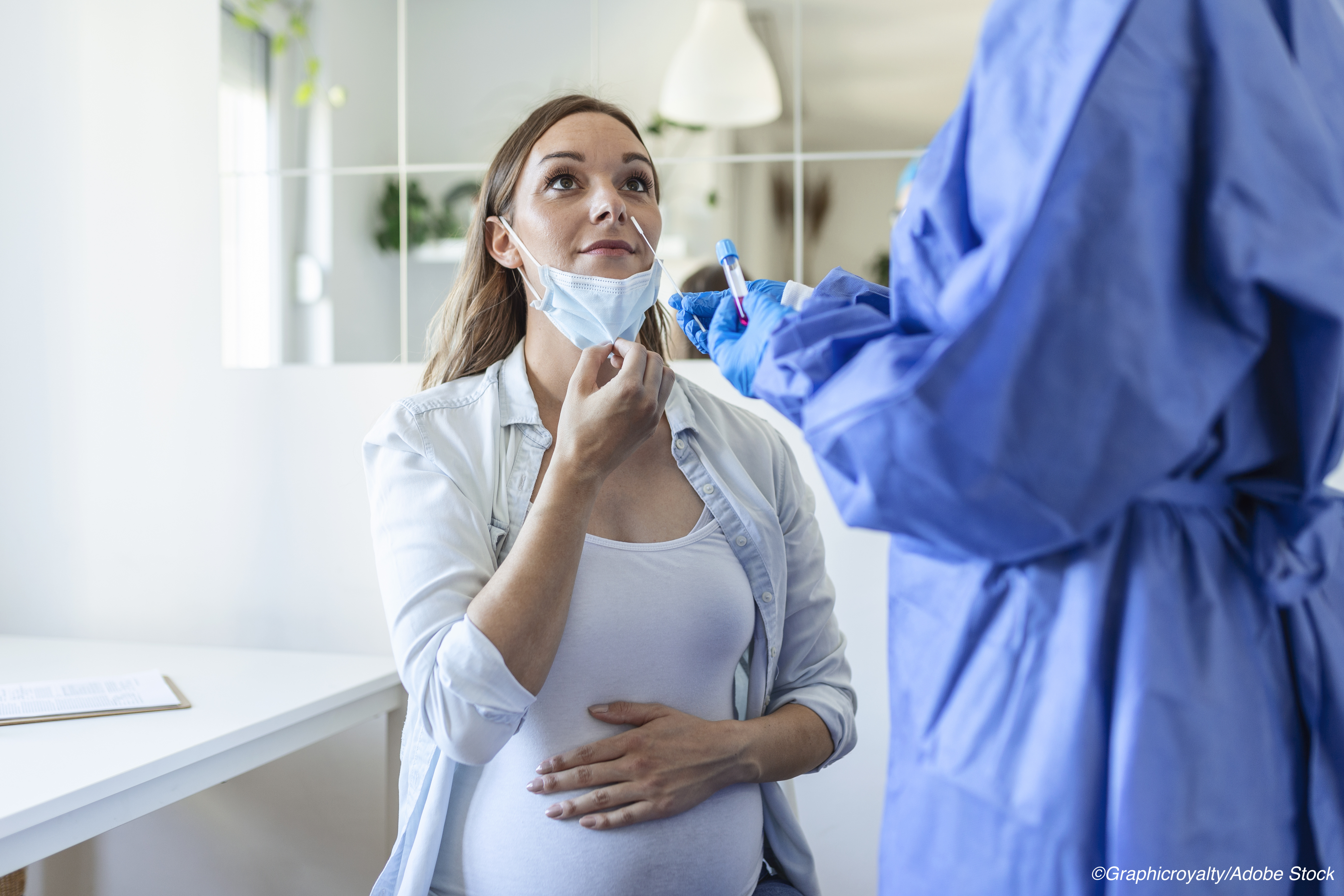Two studies published this week suggest an increased risk for serious birth-related complications among women who contract Covid-19 during pregnancy, but the research findings differ somewhat on when SARS-CoV-2 infection might most impact risk.
In both trials, contracting Covid-19 during pregnancy was linked to an increase in preterm births, stillbirth, and low birth weight, compared to not having Covid-19.
These complications were most commonly reported among women who got Covid-19 in the last month of pregnancy in an analysis of data from a national prospective cohort study from Scotland, published online January 13 in Nature Medicine.
But preterm birth and stillbirth were more commonly reported among those who got Covid-19 in their first- and second trimesters in a retrospective analysis of health records data from five U.S. states, published online the same day in the journal Lancet Digital Health.
In that study, gestational age at SARS-CoV-2 infection was correlated with gestational age at delivery and had the greatest impact on predicting gestational age at delivery, while severity of Covid-19 was not correlated with gestational age at delivery.
“A key takeaway is that even mild Covid infection can increase the risk for these birth outcomes,” researcher Samantha Piekos, PhD, of the Institute for Systems Biology, Seattle, said in an interview with BreakingMED.
“We already know that Covid can be more serious for people who are pregnant. What this research shows is that even those who may not exhibit significant symptoms may be at risk for these birth outcomes.”
Study co-author Jennifer Hadlock, MD, noted that there was more agreement than disagreement in the two newly published studies.
“The main message from both is that having Covid during pregnancy is problematic. It is associated with an increased risk for negative birth outcomes including stillbirth, preterm delivery and decreased birth weight,” she said.
Their study included data on 73,666 women who gave birth between March 5, 2020 and July 4, 2021, including 18,335 who had at least one SARS-CoV-2 test during pregnancy before Feb. 14, 2021.
In all, 882 women in the cohort tested positive for SARS-CoV-2 during their pregnancy (first trimester n=85; second trimester n=226; and third trimester n=571). A total of 19,769 never tested positive for SARS-CoV-2 and received at least one negative SARS-CoV-2 test during their pregnancy. None of the women who tested positive had been vaccinated against Covid-19.
Among those who tested positive, 1 stillbirth occurred among women testing positive during the first trimester (1.2%), 5 among those testing positive during their second trimester (2.2%), and 1 occurred among those testing positive in their third trimester (0.2%).
“SARS-CoV-2 infection was found to be associated with an increased risk of preterm delivery (P<0.05) and stillbirth (P<0.05), accounted for primarily by first and second trimester SARS-CoV-2 infections,” the authors wrote. “Gestational age at SARS-CoV-2 infection was correlated with gestational age at delivery (P<0.01) and had the greatest impact on predicting gestational age at delivery.”
Most cases of Covid-19 among the study cohort were mild to moderate, and severity of symptoms was not correlated with gestational age at delivery (P=0.31).
The nationwide, prospective Covid-19 in Pregnancy in Scotland (COPS) study includes data on all women in the country who were pregnant on, or became pregnant after March 1, 2020 linked to SARS-CoV-2 infection and Covid-19 vaccination data.
Researcher Sarah Stock, PhD, BSc, of the University of Edinburgh, UK, and colleagues, analyzed data on more than 87,000 pregnancies occurring between the start of the country’s vaccination program in December of 2020 and October of 2021. During this period, 18,457 pregnant women in Scotland were vaccinated , but vaccine coverage was found to be substantially lower among those who were pregnant than in the general population of females between the ages of 18 and 44 years.
Slightly less than 1 in 3 (32.3%) of women giving birth in October of 2021 had received two doses of vaccine, compared to 77.4% of like-age women in the general population.
Vaccination rates were lower among younger women, and among people who lived in economically deprived areas, Stock and co-authors wrote.
A total of 4,950 cases of Covid-19 were confirmed during pregnancy between the start of the vaccination program and October of 2021, with 77% of cases occurring among pregnant women who were not vaccinated and 12% occurred among partially vaccinated women. A total of 823 of the infections resulted in hospital admission.
Of the 2,364 births recorded among the cohort, 11 were stillbirths and 8 live births resulted in neonatal deaths. Ten of the stillbirths and 4 neonatal deaths occurring in babies born within 28 days of maternal infection onset.
A total of 17% of babies born within 28 days of their mother developing Covid-19 were delivered prematurely, which was more than double the 8% overall premature delivery rate in the country.
Among women delivering within 28 days of vaccination, the prenatal mortality and preterm birth rate was similar to the overall rate for women in the country.
“Our findings emphasize the need for continued efforts to increase vaccination uptake in pregnant women, especially in younger and more deprived populations,” Stock and co-authors wrote. “…Addressing low vaccine uptake in pregnant women is imperative to protect the health of women and babies.”
Disclosure:
The study by Piekos et al was funded by the U.S. National Institutes of Health. Researcher Leroy Hood and Nathan Price reported serving as scientific advisors and holding stock options in Sera Prognostics, a pregnancy diagnostics company which was not associated with the study.
Funding for the study by Stock et al was provided by the UK Research and Innovation Industrial Strategy Challenge Fund, Public Health Scotland, the Scottish government, and others.
by
Salynn Boyles, Contributing Writer, BreakingMED™
Kaiser Health News
Kaiser Health News is a nonprofit news service covering health issues. It is an editorially independent program of the Kaiser Family Foundation, which is not affiliated with Kaiser Permanente.




Create Post
Twitter/X Preview
Logout